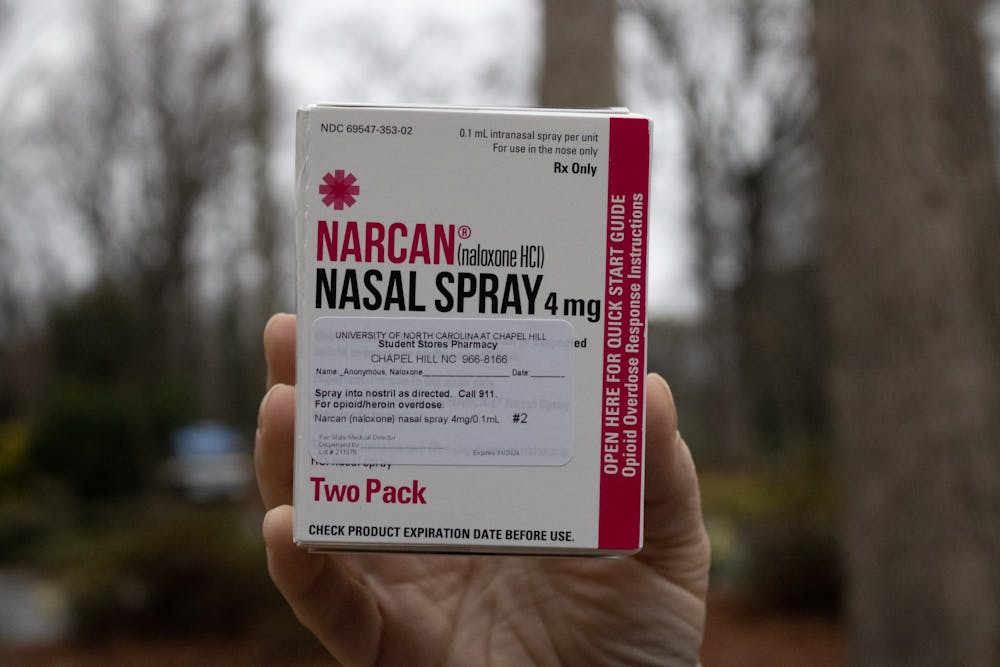The distribution of naloxone was first initiated by UNC Parents Council grant funds in 2016 after students requested distribution.
A memorial fund was later set up in honor of UNC student Eli Beard. The Eli Beard Memorial Naloxone and Recovery Expendable Fund has continued to financially support the distribution of naloxone at the University.
Sauls said that when students or community members receive a kit, it does not necessarily have to be for themselves. They can pick up a kit for someone else, such as a friend, family member or someone in their circle who may need the administration of the naloxone, since it cannot be self-administered. It is also helpful to have on-hand in case of an emergency, she said.
"It doesn't have to be a student," Sauls said. "Anyone in our community wants to have access to (the kits) has one available to them."
Delesha Carpenter, interim chairperson of the Division of Pharmaceutical Outcomes and Policy in the Eshelman School of Pharmacy, said part of her work focuses on increasing access to naloxone through community pharmacies, especially in rural areas.
“It is a highly effective medication," Carpenter said. "When we get more naloxone into the community and more community members have access to it, we see reduced opioid overdose deaths."
In the fall, North Carolina was facing a shortage of naloxone because Pfizer halted production of the drug due to a manufacturing issue. The shortage came as the state experienced a significant rise in opioid overdose deaths — which rose to an all-time high in 2020.
At the time, Pfizer expected the shortage to last through February.
Carpenter also said it is important to have a naloxone kit in case of an emergency, especially because it is a safe, highly effective and free treatment. She urged all students, faculty and staff to pick up a kit.
“Even if you think there is a really small chance that you might witness an overdose, go pick it up, have it on hand and carry it with you," Carpenter said. "I just cannot emphasize enough how important this medication is in reducing opioid overdose death rates."
Nabarun Dasgupta, an innovation fellow in the Gillings School of Global Public Health, said it is important to acknowledge that opioid overdose could affect anyone.
He said that it is crucial that people have these opportunities to obtain naloxone so that they can be an active participant in their own health.
To get the day's news and headlines in your inbox each morning, sign up for our email newsletters.
“There are preconceived notions about the people who are drug users," Dasgupta said. "But as the numbers sadly show, it is something that cuts across all ages, demographics and social statuses."
Naloxone kits are available for anyone to receive at the Campus Health Pharmacy and Student Stories Pharmacy Monday through Friday from 9 a.m. to 6 p.m.
Carpenter said that this medication is not a substitute for medical treatment that follows a potential overdose. It is highly recommended that you call 911 after administering naloxone, as it may take more than one dose to reverse the effects of an overdose.
university@dailytarheel.com



